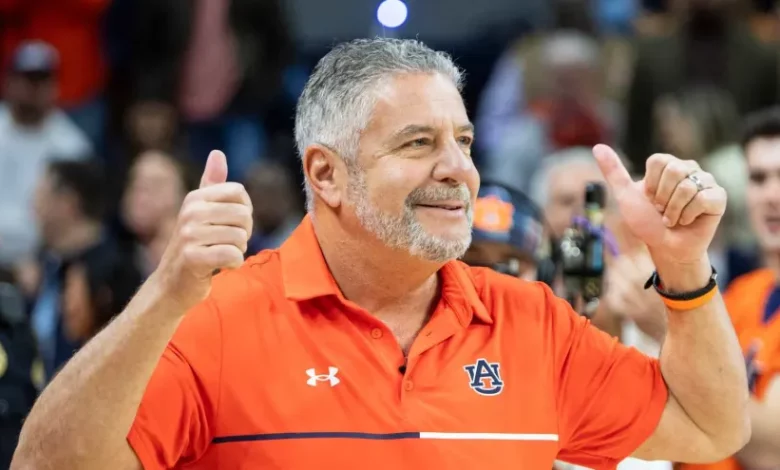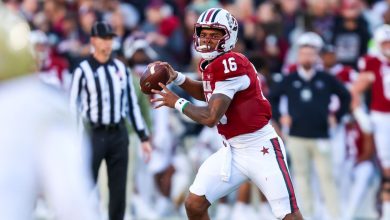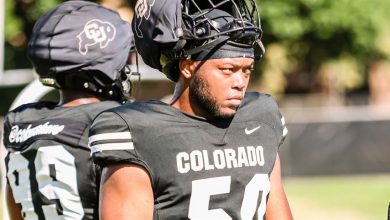Bruce Pearl says the Auburn Tigers have a bull’s eye on their back.

Bruce Pearl, the head coach of the Auburn Tigers men’s basketball team, is no stranger to the competitive intensity of college basketball. Known for his fiery passion and dynamic coaching style, Pearl has led Auburn to national prominence, transforming the program into a perennial contender in the Southeastern Conference (SEC) and on the national stage. With Auburn’s rise to elite status, a new challenge has emerged for the Tigers: the target on their back.
In the world of college sports, being the team to beat often brings a mixture of pressure, expectations, and heightened competition. When Pearl talks about his team having a “bull’s eye on their back,” it reflects a reality that every successful program must contend with—a reality that adds layers of complexity to the task of maintaining excellence. The phrase underscores the intense focus and scrutiny that comes with success, both from opponents looking to make a statement and from fans and media who expect continued dominance.
For Auburn, the bull’s eye is a product of the team’s rise to national relevance, a place that has made them a marked team. But what does this really mean for the Tigers and for Pearl as a coach? To understand the significance of this “bull’s eye,” it’s important to delve into the context of Auburn’s basketball journey under Bruce Pearl and explore the multiple dimensions of what it means to carry such a target.
The Rise of Auburn Basketball Under Bruce Pearl
When Bruce Pearl was hired as Auburn’s head coach in 2014, the program was in need of a revival. The Tigers had shown flashes of potential but had struggled to reach consistent success in the SEC and beyond. Pearl, known for his energetic coaching style and ability to turn around struggling programs, was brought in to reinvigorate the team. His impact was immediate, as Auburn’s performance on the court improved, and the program began to gain respect within the conference.
Under Pearl, Auburn’s culture shifted. The team became known for its up-tempo play, aggressive defense, and relentless intensity. As Pearl built the program, he was able to attract top talent, both from the high school ranks and through the transfer portal, assembling a competitive roster that could compete with the best in the country. Auburn’s offense became more dynamic, and the team’s defense, which was a hallmark of Pearl’s coaching philosophy, was often stifling.
By 2019, Auburn had made its first NCAA Tournament appearance in over a decade, culminating in a run to the Final Four. This historic achievement thrust the program into the national spotlight, and the Tigers were no longer seen as underdogs. They had arrived as legitimate contenders. The team’s success that year wasn’t a one-off, but rather the beginning of a new era of Auburn basketball.
Since then, the Tigers have consistently ranked among the top teams in the SEC, and Auburn’s reputation as a basketball powerhouse has grown. Under Pearl, Auburn has cultivated a winning tradition, attracting more talent and raising expectations year after year. The program’s rise has not only reshaped Auburn’s basketball legacy but also shifted the dynamics within the SEC and the larger college basketball landscape.
The Bull’s Eye: What Does It Mean?
When Bruce Pearl refers to Auburn having a “bull’s eye on their back,” he’s speaking to the reality that success brings heightened scrutiny and increased competition. Teams at the top of the standings are always targets, and Auburn’s emergence as a force in college basketball means that every opponent they face will give their best effort, hoping to take down a giant.
The bull’s eye also reflects the growing expectations placed on Auburn, both from within and outside the program. Fans expect continued success, and the national media often places high expectations on teams that have experienced a rise in stature. The pressure to maintain that level of performance can be overwhelming, especially for a program that is still relatively new to the elite ranks.
Increased Competition in the SEC
As Auburn has ascended in college basketball, it has brought new challenges, particularly in the SEC. The Tigers are no longer just another team in the conference; they are now viewed as a contender. With that status, opponents are especially motivated when facing Auburn. Each SEC team knows that beating Auburn is a significant achievement, and they will prepare accordingly.
Auburn’s opponents in the SEC, including powerhouses like Kentucky, Alabama, Tennessee, and Arkansas, are always ready to bring their A-game when facing Pearl’s team. SEC basketball is known for its physicality and competitiveness, and now that Auburn is a force to be reckoned with, every team in the conference has added extra motivation to take them down. The Tigers are no longer the underdog but rather the team everyone is gunning for.
Additionally, Auburn is now playing a larger role in shaping the SEC’s hierarchy. While the Tigers have been incredibly successful under Pearl, the competition within the SEC remains fierce. Teams like Kentucky, who have traditionally been at the top of the conference, see Auburn’s rise as a challenge to their supremacy. Programs like Alabama and Tennessee, which have made significant strides in recent years, are also aiming to take over the SEC title, further intensifying the pressure on Auburn.
The Role of Bruce Pearl in Managing the Pressure
Managing the expectations and pressures that come with being a top-tier team requires leadership, and Bruce Pearl’s experience has been invaluable in navigating this new territory. Pearl is no stranger to success in college basketball, having previously led Tennessee to great heights. He understands the nuances of coaching a team with a target on its back and has the temperament and strategy to keep his players focused on the task at hand.
Pearl’s leadership style is built on a foundation of motivation and accountability. His high-energy, emotional approach to coaching rallies his players and instills a sense of purpose and pride in the program. He emphasizes the importance of preparation, focus, and staying grounded, ensuring that his team does not get distracted by outside noise or the weight of expectations.
At the same time, Pearl knows how to manage the emotions of his players. Under his leadership, Auburn has become a well-balanced team, capable of executing under pressure. He instills a sense of belief in his players, teaching them that they can handle the pressure that comes with being a high-profile team. Whether it’s a crucial SEC game or a nationally televised matchup, Pearl ensures that his players are mentally prepared to perform when it matters most.
Dealing with the Bull’s Eye: Expectations and Consistency
With a bull’s eye on their back, Auburn faces the challenge of maintaining the level of success that has become expected. College basketball is a sport where consistency is key, and the Tigers must continue to evolve and improve year after year to stay at the top.
The expectations for Auburn are now much higher than they were when Pearl first arrived in 2014. What was once considered a successful season—a decent run in the NCAA Tournament or a competitive finish in the SEC—is now seen as a baseline. Auburn fans, who have grown accustomed to winning, now expect their team to be competitive at the highest levels, contending for both the SEC title and a deep run in the NCAA Tournament.
For Pearl and the Tigers, the challenge is to embrace these expectations without succumbing to the pressure. The key to navigating the bull’s eye is a balanced approach: the team must stay hungry, remain focused on improving, and remember the values that brought them to this point. Auburn cannot rest on its past achievements, and the players must constantly work to stay ahead of the competition. Pearl’s leadership will continue to play a pivotal role in guiding Auburn through this period of heightened expectations.
The Importance of Recruiting and Depth
As Auburn’s success continues, recruiting will play a crucial role in maintaining the program’s status as a national contender. In order to stay competitive, Auburn needs to continue attracting top talent—players who can handle the pressures of being a highly ranked team. The Tigers will need depth across all positions, a strong bench, and the development of young talent to stay at the forefront of college basketball.
The increased competition and pressure to maintain success also mean that Auburn will need to be adaptable. Recruiting, game strategy, and player development must all evolve in response to the growing intensity of the competition. As other programs get better, Auburn must find ways to stay ahead of the curve, building on its success while always looking for opportunities to improve.









